Photo: Theo Wargo/Getty Images for The Recording Academy
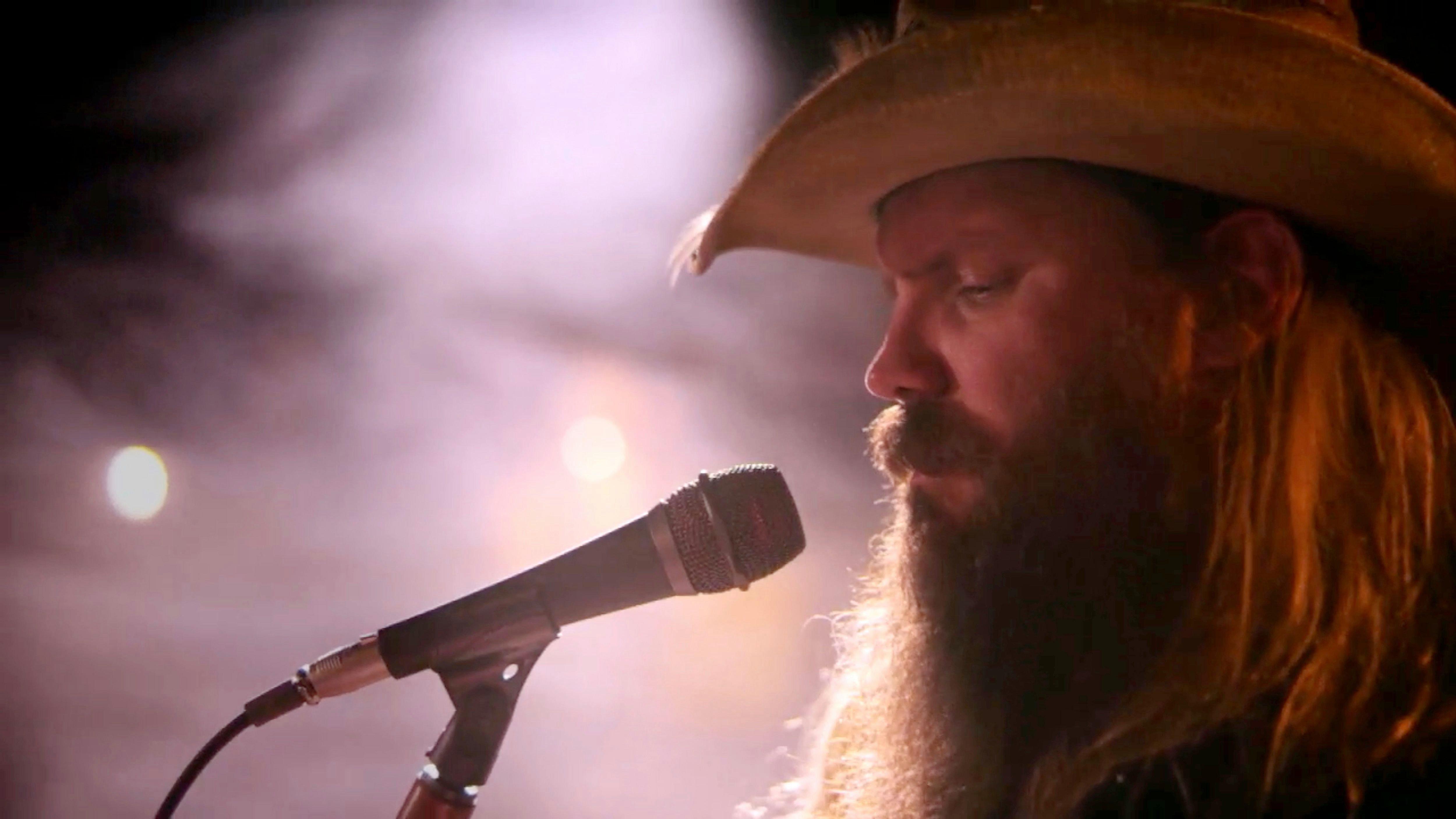
news
Chris Stapleton's "Cold" Wins Best Country Song | 2022 GRAMMYs
Chris Stapleton's "Cold" wins the GRAMMY for Best Country Song at the 2022 GRAMMYs
Chris Stapleton's "Cold" wins the GRAMMY for Best Country Song at the 2022 GRAMMYs. This win is the country star’s second of the 2022 GRAMMYs (he also won Best Country Solo Performance for "You Should Probably Leave") and the seventh win of his career.
Stapleton and his co-writers — Dave Cobb, J.T. Cure and Derek Mixon — took the stage together to accept the award. The singer acknowledged that his fellow "Cold" songwriters are the "guys that I do everything with," which he said makes winning a GRAMMY for their song "probably the greatest thing on Earth to me."
Maren Morris' "Better Than We Found It," Kacey Musgraves' "camera roll," Thomas Rhett's "Country Again," Walker Hayes' "Fancy Like," and Mickey Guyton's "Remember Her Name" were the other songs nominated in the category.
Check out the complete list of winners and nominees at the 2022 GRAMMYs.
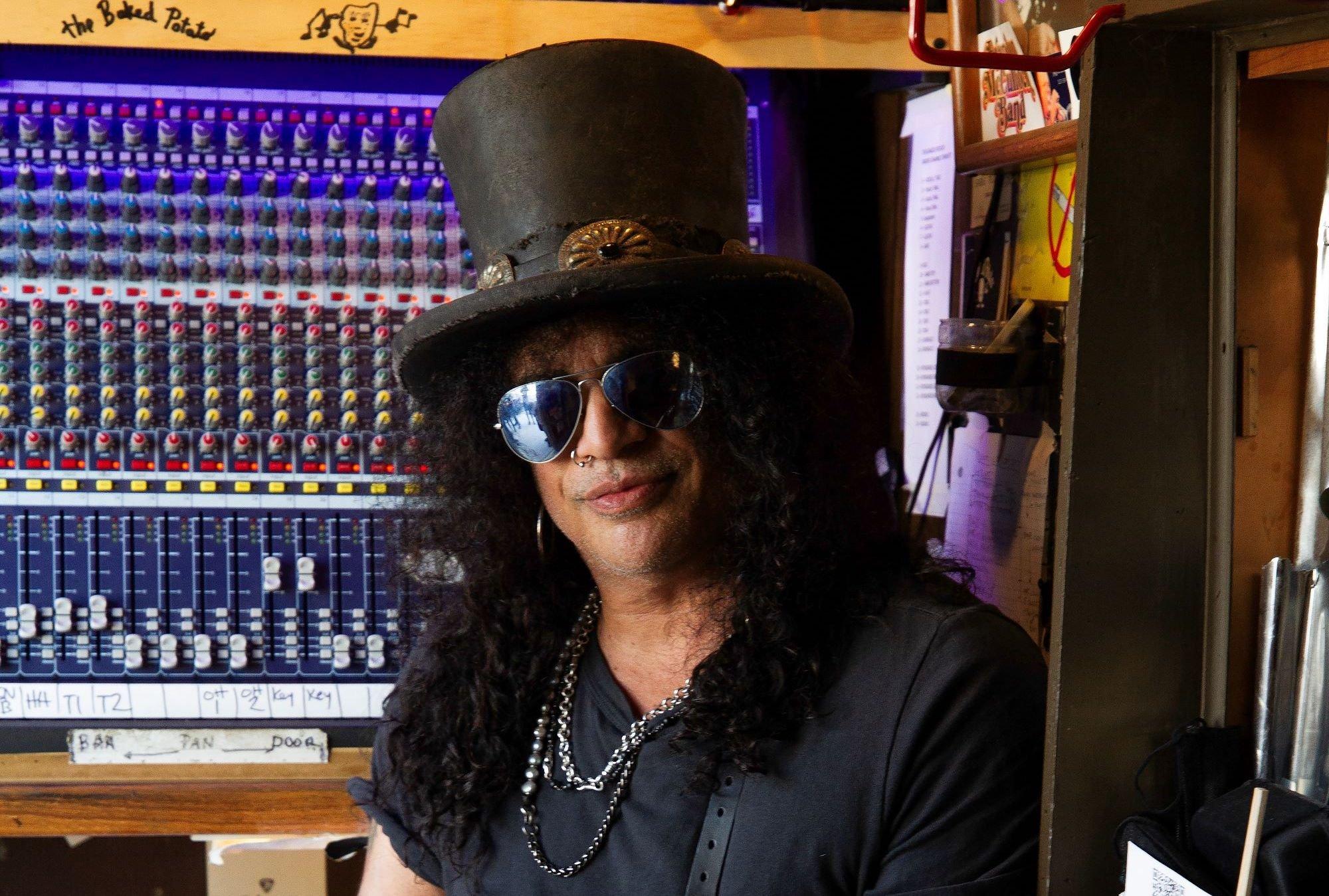
interview
Slash's New Blues Ball: How His Collaborations Album 'Orgy Of The Damned' Came Together
On his new album, 'Orgy Of The Damned,' Slash recruits several friends — from Aerosmith's Steven Tyler to Demi Lovato — to jam on blues classics. The rock legend details how the project was "an accumulation of stuff I've learned over the years."
In the pantheon of rock guitar gods, Slash ranks high on the list of legends. Many fans have passionately discussed his work — but if you ask him how he views his evolution over the last four decades, he doesn't offer a detailed analysis.
"As a person, I live very much in the moment, not too far in the past and not very far in the future either," Slash asserts. "So it's hard for me to really look at everything I'm doing in the bigger scheme of things."
While his latest endeavor — his new studio album, Orgy Of The Damned — may seem different to many who know him as the shredding guitarist in Guns N' Roses, Slash's Snakepit, Velvet Revolver, and his four albums with Myles Kennedy and the Conspirators, it's a prime example of his living-in-the-moment ethos. And, perhaps most importantly to Slash, it goes back to what has always been at the heart of his playing: the blues.
Orgy Of The Damned strips back much of the heavier side of his playing for a 12-track homage to the songs and artists that have long inspired him. And he recruited several of his rock cohorts — the likes of AC/DC's Brian Johnson, Aerosmith's Steven Tyler, Gary Clark Jr., Iggy Pop, Beth Hart, and Dorothy, among others — to jam on vintage blues tunes with him, from "Hoochie Coochie Man" to "Born Under A Bad Sign."
But don't be skeptical of his current venture — there's plenty of fire in these interpretations; they just have a different energy than his harder rocking material. The album also includes one new Slash original, the majestic instrumental "Metal Chestnut," a nice showcase for his tastefully melodic and expressive playing.
The initial seed for the project was planted with the guitarist's late '90s group Slash's Blues Ball, which jammed on genre classics. Those live, spontaneous collaborations appealed to him, so when he had a small open window to get something done recently, he jumped at the chance to finally make a full-on blues album.
Released May 17, Orgy Of The Damned serves as an authentic bridge from his musical roots to his many hard rock endeavors. It also sees a full-circle moment: two Blues Ball bandmates, bassist Johnny Griparic and keyboardist Teddy Andreadis, helped lay down the basic tracks. Further seizing on his blues exploration, Slash will be headlining his own touring blues festival called S.E.R.P.E.N.T. in July and August, with support acts including the Warren Haynes Band, Keb' Mo', ZZ Ward, and Eric Gales.
Part of what has kept Slash's career so intriguing is the diversity he embraces. While many heavy rockers stay in their lane, Slash has always traveled down other roads. And though most of his Orgy Of The Damned guests are more in his world, he's collaborated with the likes of Michael Jackson, Carole King and Ray Charles — further proof that he's one of rock's genre-bending greats.
Below, Slash discusses some of the most memorable collabs from Orgy Of The Damned, as well as from his wide-spanning career.
I was just listening to "Living For The City," which is my favorite track on the album.
Wow, that's awesome. That was the track that I knew was going to be the most left of center for the average person, but that was my favorite song when [Stevie Wonder's 1973 album] Innervisions came out when I was, like, 9 years old. I loved that song. This record's origins go back to a blues band that I put together back in the '90s.
Slash's Blues Ball.
Right. We used to play "Superstition," that Stevie Wonder song. I did not want to record that [for Orgy Of The Damned], but I still wanted to do a Stevie Wonder song. So it gave me the opportunity to do "Living For The City," which is probably the most complicated of all the songs to learn. I thought we did a pretty good job, and Tash [Neal] sang it great. I'm glad you dig it because you're probably the first person that's actually singled that song out.
With the Blues Ball, you performed Hoyt Axton's "The Pusher" and Robert Johnson's "Crossroads," and they surface here. Isn't it amazing it took this long to record a collection like this?
[Blues Ball] was a fun thrown-together thing that we did when I [was in, I] guess you call it, a transitional period. I'd left Guns N' Roses [in 1996], and it was right before I put together a second incarnation of Snakepit.
I'd been doing a lot of jamming with a lot of blues guys. I'd known Teddy [Andreadis] for a while and been jamming with him at The Baked Potato for years prior to this. So during this period, I got together with Ted and Johnny [Griparic], and we started with this Blues Ball thing. We started touring around the country with it, and then even made it to Europe. It was just fun.
Then Snakepit happened, and then Velvet Revolver. These were more or less serious bands that I was involved in. Blues Ball was really just for the fun of it, so it didn't really take precedence. But all these years later, I was on tour with Guns N' Roses, and we had a three-week break or whatever it was. I thought, I want to make that f—ing record now.
It had been stewing in the back of my mind subconsciously. So I called Teddy and Johnny, and I said, Hey, let's go in the studio and just put together a set and go and record it. We got an old set list from 1998, picked some songs from an app, picked some other songs that I've always wanted to do that I haven't gotten a chance to do.
Then I had the idea of getting Tash Neal involved, because this guy is just an amazing singer/guitar player that I had worked with in a blues thing a couple years prior to that. So we had the nucleus of this band.
Then I thought, Let's bring in a bunch of guest singers to do this. I don't want to try to do a traditional blues record, because I think that's going to just sound corny. So I definitely wanted this to be more eclectic than that, and more of, like, Slash's take on these certain songs, as opposed to it being, like, "blues." It was very off-the-cuff and very loose.
It's refreshing to hear Brian Johnson singing in his lower register on "Killing Floor" like he did in the '70s with Geordie, before he got into AC/DC. Were you expecting him to sound like that?
You know, I didn't know what he was gonna sing it like. He was so enthusiastic about doing a Howlin' Wolf cover.
I think he was one of the first calls that I made, and it was really encouraging the way that he reacted to the idea of the song. So I went to a studio in Florida. We'd already recorded all the music, and he just fell into it in that register.
I think he was more or less trying to keep it in the same feel and in the same sort of tone as the original, which was great. I always say this — because it happened for like two seconds, he sang a bit in the upper register — but it definitely sounded like AC/DC doing a cover of Howlin' Wolf. We're not AC/DC, but he felt more comfortable doing it in the register that Howlin' Wolf did. I just thought it sounded really great.
You chose to have Demi Lovato sing "Papa Was A Rolling Stone." Why did you pick her?
We used to do "Papa Was A Rolling Stone" back in Snakepit, actually, and Johnny played bass. We had this guy named Rod Jackson, who was the singer, and he was incredible. He did a great f—ing interpretation of the Temptations singing it.
When it came to doing it for this record, I wanted to have something different, and the idea of having a young girl's voice telling the story of talking to her mom to find out about her infamous late father, just made sense to me. And Demi was the first person that I thought of. She's got such a great, soulful voice, but it's also got a certain kind of youth to it.
When I told her about it, she reacted like Brian did: "Wow, I would love to do that." There's some deeper meaning about the song to her and her personal life or her experience. We went to the studio, and she just belted it out. It was a lot of fun to do it with her, with that kind of zeal.
You collaborate with Chris Stapleton on Fleetwood Mac's "Oh Well" by Peter Green. I'm assuming the original version of that song inspired "Double Talkin' Jive" by GN'R?
It did not, but now that you mention it, because of the classical interlude thing at the end... Is that what you're talking about? I never thought about it.
I mean the overall vibe of the song.
"Oh Well" was a song that I didn't hear until I was about 12 years old. It was on KMET, a local radio station in LA. I didn't even know there was a Fleetwood Mac before Stevie Nicks and Lindsey Buckingham. I always loved that song, and I think it probably had a big influence on me without me even really realizing it. So no, it didn't have a direct influence on "Double Talkin' Jive," but I get it now that you bring it up.
Was there something new that you learned in making this album? Were your collaborators surprised by their own performances?
I think Gary Clark is just this really f—ing wonderful guitar player. When I got "Crossroads," the idea originally was "Crossroads Blues," which is the original Robert Johnson version. And I called Gary and said, "Would you want to play with me on this thing?"
He and I only just met, so I didn't know what his response was going to be. But apparently, he was a big Guns N' Roses fan — I get the idea, anyway. We changed it to the Cream version just because I needed to have something that was a little bit more upbeat. So when we got together and played, we solo-ed it off each other.
When I listen back to it, his playing is just so f—ing smooth, natural, and tasty. There was a lot of that going on throughout the making of the whole record — acclimating to the song and to the feel of it, just in the moment.
I think that's all an accumulation of stuff that I've learned over the years. The record probably would be way different if I did it 20 years ago, so I don't know what that evolution is. But it does exist. The growth thing — God help us if you don't have it.
You've collaborated with a lot of people over the years — Michael Jackson, Carole King, Lemmy, B.B. King, Fergie. Were there any particular moments that were daunting or really challenging? And was there any collaboration that produced something you didn't expect?
All those are a great example of the growth thing, because that's how you really grow as a musician. Learning how to adapt to playing with other people, and playing with people who are better than you — that really helps you blossom as a player.
Playing with Carole King [in 1993] was a really educational experience because she taught me a lot about something that I thought that I did naturally, but she helped me to fine tune it, which was soloing within the context of the song. [It was] really just a couple of words that she said to me during this take that stuck with me. I can't remember exactly what they were, but it was something having to do with making room for the vocal. It was really in passing, but it was important knowledge.
The session that really was the hardest one that I ever did was [when] I was working with Ray Charles before he passed away. I played on his "God Bless America [Again]" record [on 2002's Ray Charles Sings for America], just doing my thing. It was no big deal. But he asked me to play some standards for the biopic on him [2004's Ray], and he thought that I could just sit in with his band playing all these Ray Charles standards.
That was something that they gave me the chord charts for, and it was over my head. It was all these chord changes. I wasn't familiar with the music, and most of it was either a jazz or bebop kind of a thing, and it wasn't my natural feel.
I remember taking the chord charts home, those kinds you get in a f—ing songbook. They're all kinds of versions of chords that wouldn't be the version that you would play.
That was one of those really tough sessions that I really learned when I got in over my head with something. But a lot of the other ones I fall into more naturally because I have a feel for it.
That's how those marriages happen in the first place — you have this common interest of a song, so you just feel comfortable doing it because it's in your wheelhouse, even though it's a different kind of music than what everybody's familiar with you doing. You find that you can play and be yourself in a lot of different styles. Some are a little bit challenging, but it's fun.
Are there any people you'd like to collaborate with? Or any styles of music you'd like to explore?
When you say styles, I don't really have a wish list for that. Things just happen. I was just working with this composer, Bear McCreary. We did a song on this epic record that's basically a soundtrack for this whole graphic novel thing, and the compositions are very intense. He's very particular about feel, and about the way each one of these parts has to be played, and so on. That was a little bit challenging. We're going to go do it live at some point coming up.
There's people that I would love to play with, but it's really not like that. It's just whatever opportunities present themselves. It's not like there's a lot of forethought as to who you get to play with, or seeking people out. Except for when you're doing a record where you have people come in and sing on your record, and you have to call them up and beg and plead — "Will you come and do this?"
But I always say Stevie Wonder. I think everybody would like to play with Stevie Wonder at some point.
Incubus On Revisiting Morning View & Finding Rejuvenation By Looking To The Past
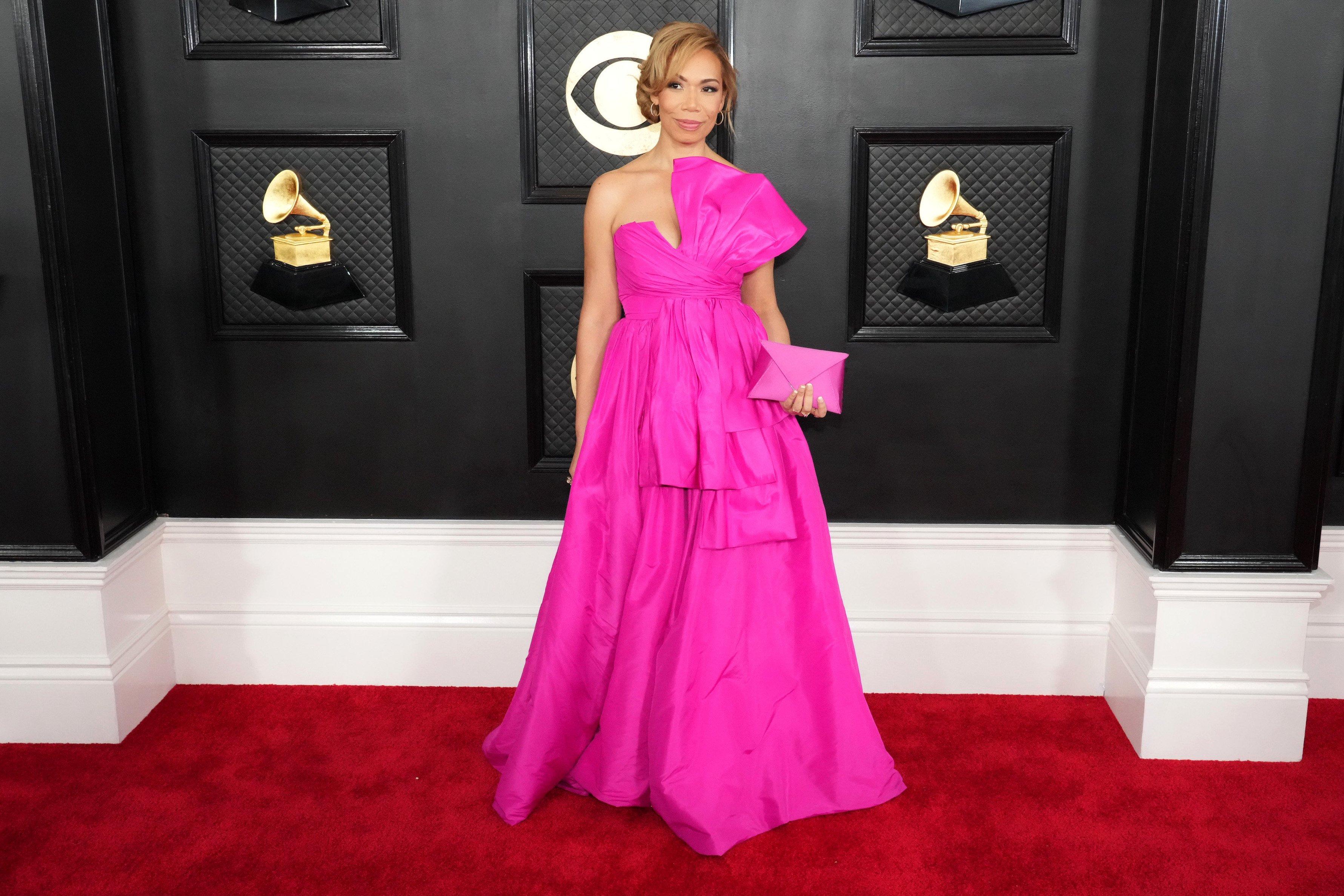
Photo: Jeff Kravitz/FilmMagic
video
Where Do You Keep Your GRAMMY?: Autumn Rowe Revisits Her Unexpected Album Of The Year Win With Jon Batiste
Acclaimed songwriter Autumn Rowe reveals the inspirational location where her Album Of The Year golden gramophone resides, and details the "really funny way" she first met Jon Batiste.
Ever since Autumn Rowe won a GRAMMY in 2022, it's been her biggest motivation. That's why the musical multi-hyphenate keeps the award nestled in her writing room — to keep her creative juices flowing.
"It reminds me that anything is possible," she says in the latest episode of Where Do You Keep Your GRAMMY?
Rowe won her first-ever career GRAMMY in 2022 with an Album Of The Year award for Jon Batiste's We Are. "It was very stressful," she recalls with a laugh.
"Right before they announced Album Of The Year, the pressure started getting to me," Rowe explains. "Album Of The Year is the biggest possible award you can win. So, I'm like, 'We didn't win any of these [categories], how are we going to win the biggest award?"
The win also taught her one unforgettable, valuable lesson: "We matter. The music matters. Everything matters. We just have to create it. If there isn't space for it, we have to make space for it. Don't wait for something to open."
Rowe says she grew up "super dirt poor" and never even had the opportunity to watch the awards ceremony on television. "To be a GRAMMY winner means it is possible for everyone," she declares.
Press play on the video above to learn more about the backstory of Autumn Rowe's Album Of The Year award, and remember to check back to GRAMMY.com for more new episodes of Where Do You Keep Your GRAMMY?
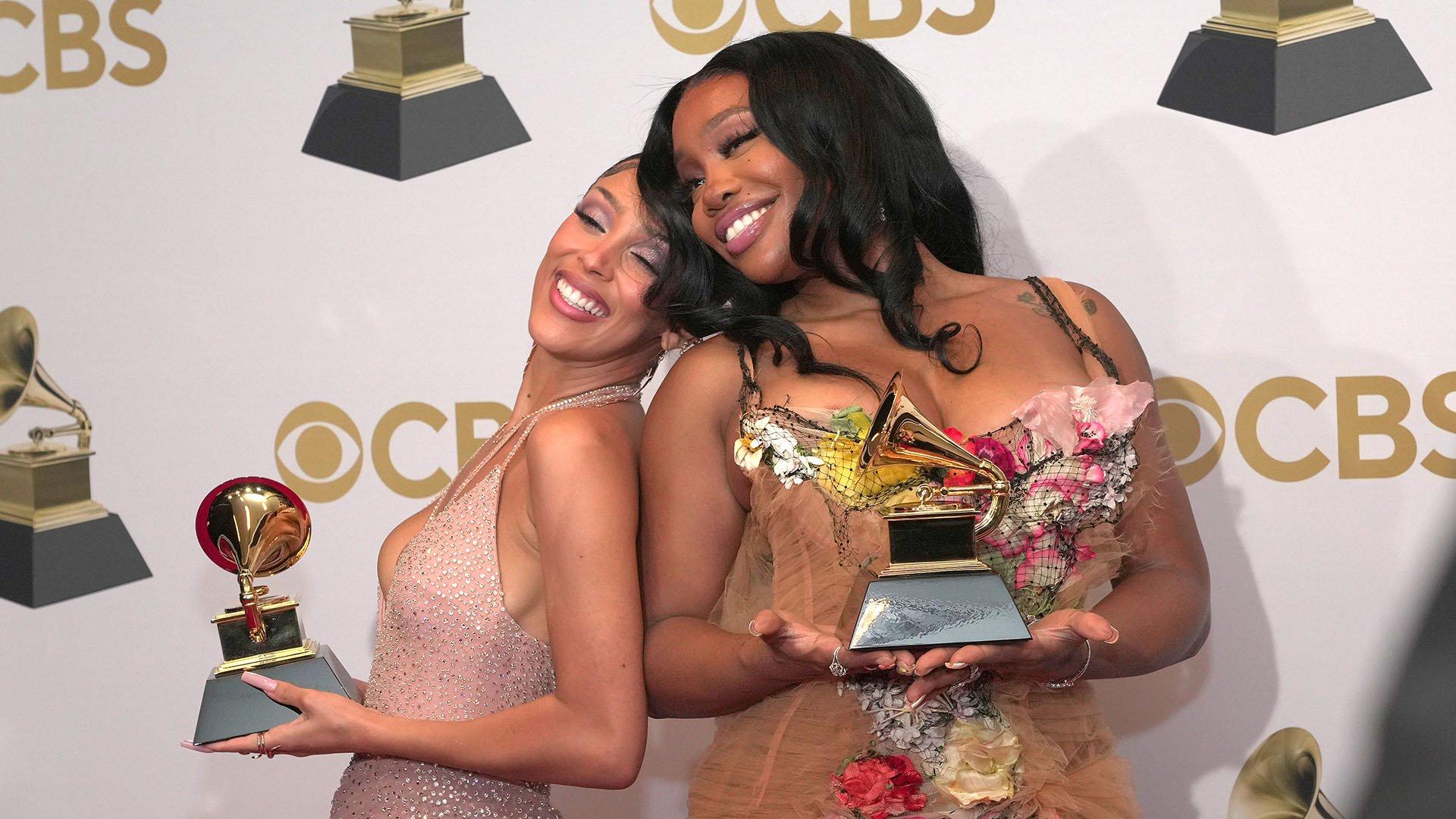
Photo: Kevin Mazur/Getty Images for The Recording Academy
video
GRAMMY Rewind: Watch Doja Cat & SZA Tearfully Accept Their First GRAMMYs For "Kiss Me More"
Relive the moment the pair's hit "Kiss Me More" took home Best Pop Duo/Group Performance, which marked the first GRAMMY win of their careers.
As Doja Cat put it herself, the 2022 GRAMMYs were a "big deal" for her and SZA.
Doja Cat walked in with eight nominations, while SZA entered the ceremony with five. Three of those respective nods were for their 2021 smash "Kiss Me More," which ultimately helped the superstars win their first GRAMMYs.
In this episode of GRAMMY Rewind, revisit the night SZA and Doja Cat accepted the golden gramophone for Best Pop Duo/Group Performance — a milestone moment that Doja Cat almost missed.
"Listen. I have never taken such a fast piss in my whole life," Doja Cat quipped after beelining to the stage. "Thank you to everybody — my family, my team. I wouldn't be here without you, and I wouldn't be here without my fans."
Before passing the mic to SZA, Doja also gave a message of appreciation to the "Kill Bill" singer: "You are everything to me. You are incredible. You are the epitome of talent. You're a lyricist. You're everything."
SZA began listing her praises for her mother, God, her supporters, and, of course, Doja Cat. "I love you! Thank you, Doja. I'm glad you made it back in time!" she teased.
"I like to downplay a lot of s— but this is a big deal," Doja tearfully concluded. "Thank you, everybody."
Press play on the video above to hear Doja Cat and SZA's complete acceptance speech for Best Pop Duo/Group Performance at the 2022 GRAMMY Awards, and check back to GRAMMY.com for more new episodes of GRAMMY Rewind.
How 'SOS' Transformed SZA Into A Superstar & Solidified Her As The Vulnerability Queen
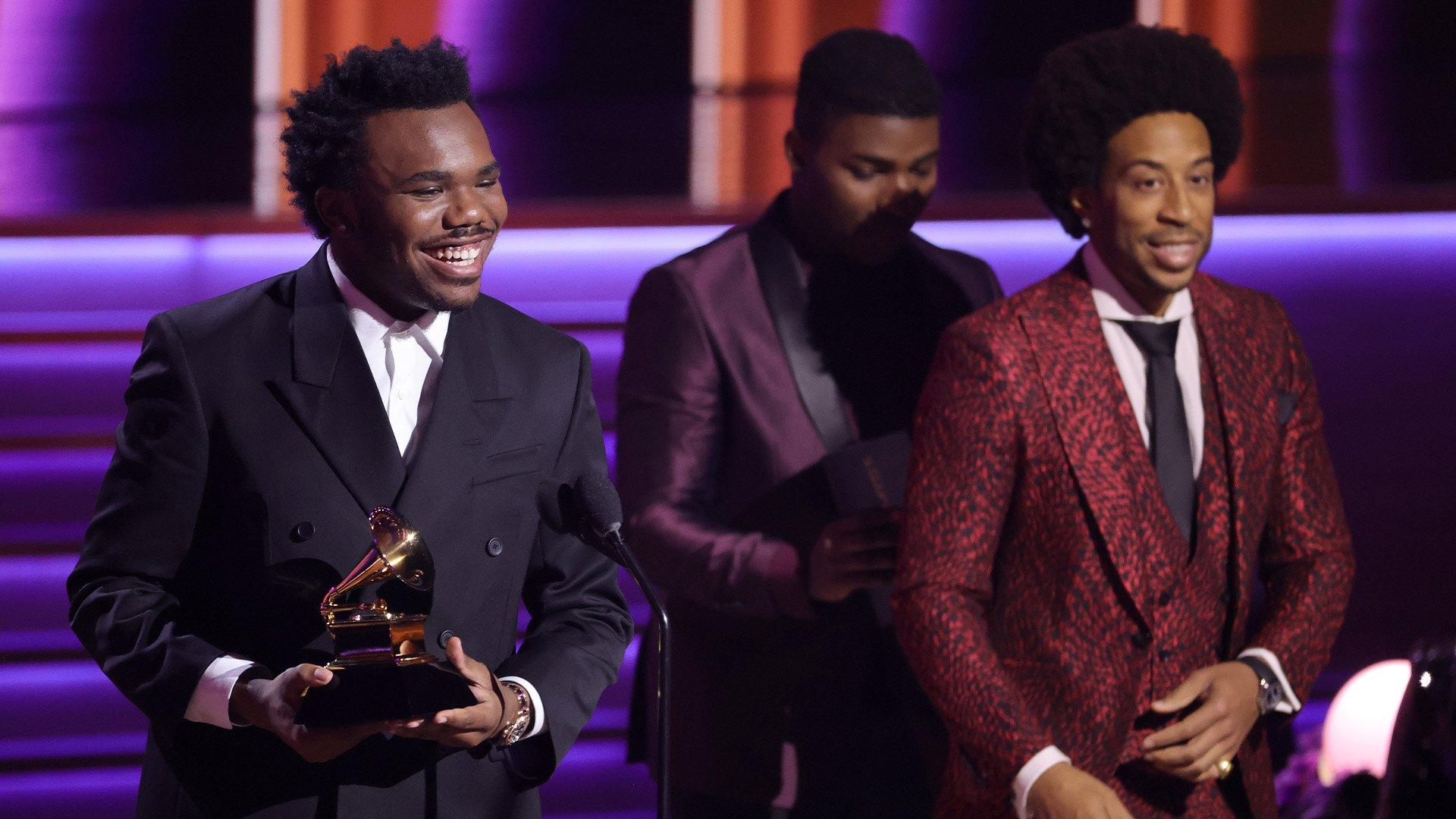
Photo: Matt Winkelmeyer/Getty Images
video
GRAMMY Rewind: Watch Baby Keem Celebrate "Family Ties" During Best Rap Performance Win In 2022
Revisit the moment budding rapper Baby Keem won his first-ever gramophone for Best Rap Performance at the 2022 GRAMMY Awards for his Kendrick Lamar collab "Family Ties."
For Baby Keem and Kendrick Lamar, The Melodic Blue was a family affair. The two cousins collaborated on three tracks from Keem's 2021 debut LP, "Range Brothers," "Vent," and "Family Ties." And in 2022, the latter helped the pair celebrate a GRAMMY victory.
In this episode of GRAMMY Rewind, turn the clock back to the night Baby Keem accepted Best Rap Performance for "Family Ties," marking the first GRAMMY win of his career.
"Wow, nothing could prepare me for this moment," Baby Keem said at the start of his speech.
He began listing praise for his "supporting system," including his family and "the women that raised me and shaped me to become the man I am."
Before heading off the stage, he acknowledged his team, who "helped shape everything we have going on behind the scenes," including Lamar. "Thank you everybody. This is a dream."
Baby Keem received four nominations in total at the 2022 GRAMMYs. He was also up for Best New Artist, Best Rap Song, and Album Of The Year as a featured artist on Kanye West's Donda.
Press play on the video above to watch Baby Keem's complete acceptance speech for Best Rap Performance at the 2022 GRAMMYs, and check back to GRAMMY.com for more new episodes of GRAMMY Rewind.
How The 2024 GRAMMYs Saw The Return Of Music Heroes & Birthed New Icons
